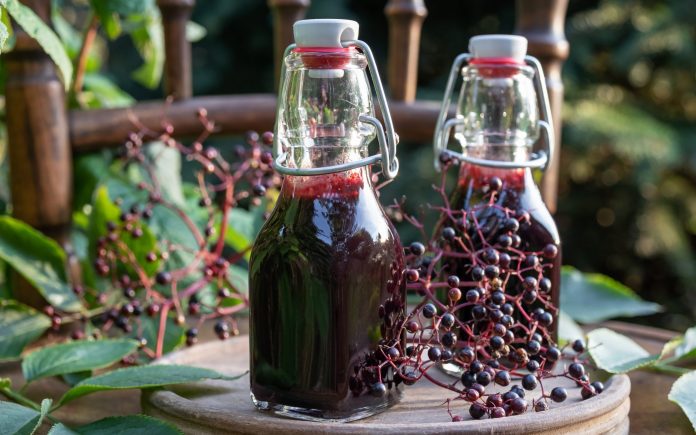
One wouldn’t normally expect flu remedies to also have the ability to guard against flu but such is the case with elderberry extract. The infusion, taken from the fruit of the elderberry bush, has been used in food and drink, as well as for immune support and as a flu remedy. While many other medical treatments have fallen short when faced with the rigors of scientific study, elderberry extract has, in actuality, been demonstrated to both block flu viruses from attaching to host cells, in addition to significantly reducing the duration and severity of influenza symptoms, which makes it both a flu remedy and preventative step.
Seasonal Flu
Annually, a genetic variation of what’s called the seasonal flu virus travels around the planet, killing hundreds of thousands of individuals. Pandemics are viruses that spread and travel faster than the normal, seasonal selection. The worst flu pandemic of the 20th century, the Spanish Flu of 1918, killed over 50 million people. There are numerous steps people can take to stop the spread of the flu virus with powerful immune support, healthy habits and common sense. If infection occurs, elderberry extract may be used to decrease the time necessary to recuperate and to minimize the degree of the symptoms.
Healthy Habits And Common Sense
The number one way to guard against flu is to wash your hands regularly with soap and water. When school-age kids were taught the importance of hand washing and demonstrated to cough and sneeze into the crook of the arm, as opposed to in their hands, colds and influenza were decreased by over 80 percent. When infected individuals cough in their hand, everything they touch becomes infected with countless viruses. Since the flu virus can remain alive for hours with no bunch, touching a contaminated surface and then touching your face is just another way of catching the flu. The flu virus can be commonly spread through the air.
Flu vaccine is among the flu remedies which people turn to as a preventative measure. Being vaccinated, however, doesn’t stop them from carrying the virus on their clothes or other things and spreading the disease to others. Hand sanitizers are another fantastic line of defense against the flu. Eating a nutritious diet, staying hydrated and getting enough rest are also important. Vitamin C and Zinc will also provide immune support, but neither of these dietary supplements may compare to the immune support offered by elderberry extract.
Elderberry Extract
In a study published in the July 2009 issue of the Scientific Journal of Phytochemistry, a peer-reviewed scientific journal (Volume 70, Issue 10), elderberry extract was shown to contain flavonoids which offer anti-inflammatory and antioxidant properties. The immune support from antioxidants counteracts the effects of free radicals, which damage healthy cells, which makes them less able to protect against disease.
Even more significant and striking were the findings that elderberry extract attaches, or binds, itself into the flu virus, rending the virus incapable of attaching itself to a host cell. Viruses replicate by binding to a host cell and injecting their own DNA into the cell, which reprograms the cell to make more viruses. The miserable symptoms of influenza can be painful including chills, fever, nausea, fatigue, nausea, headache and muscle and joint pain.
Elderberry Extract Is One Of the Best Flu Remedies
Besides providing immune support, elderberry extract has been clinically proven to decrease the time it requires an infected individual to recover, in addition to decrease the intensity of the symptoms. The influenza virus normally takes six days to finish its cycle. However, in a study published in the Online Journal of Pharmacology and PharmacoKinetics, elderberry extract was demonstrated to be an effective influenza remedy within two days, an outcome that many other flu remedies can’t provide.
Conclusion
Participants in this double blind, placebo controlled study all demonstrated flu-like symptoms at the start of the study. Half of the participants were given a placebo while the other half was awarded elderberry extract. During the first 24 hours, the team given the elderberry extract noted significant improvements whereas the placebo group felt especially worse. Within two days, 28 percent of the elderberry group was completely symptom free and 60 percent reported only a couple of mild symptoms. During the same time period, just 16 percent of the placebo group reported feeling any better at all, whereas the majority felt considerably worse and for many more days.





